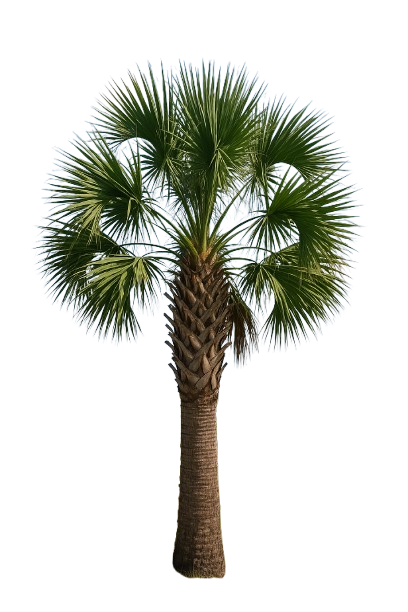
Swamp cabbage, also known as hearts of palm, is a traditional Florida dish with deep roots in the state’s history. Harvested from the core of Florida’s state tree, the sabal palm, it’s typically braised with smoked ham (or bacon), onions, tomatoes, and seasonings to create a hearty side dish. Its earthy, nutty flavor—often likened to artichokes or crunchy collard greens—pairs beautifully with grilled meats or seafood.
This culinary tradition traces back to Native American ingenuity. For millennia, tribes like the Seminole, Calusa, and Miccosukee relied on sabal palm hearts as a vital food source, preparing them raw, boiled, or stewed with wild game. Early Spanish explorers observed this practice in the 1500s, but it was 18th–19th century settlers (known as Florida Crackers) who adapted the dish into its modern form. They incorporated smoked meats and Southern cooking techniques, transforming it into a symbol of pioneer resilience.
Today, swamp cabbage remains a niche heritage food due to sustainability challenges: harvesting kills the tree, prompting Florida to ban wild harvesting on public lands. You’ll primarily find it at cultural touchstones like:
- The Swamp Cabbage Festival in LaBelle,
- Historic diners such as Marsh Landing in Fellsmere,
- Living history sites like Cracker Country (Florida State Fair), where it’s served to honor “old Florida” traditions.
While no single person “discovered” it, swamp cabbage endures as a testament to Indigenous knowledge and settler adaptation—a savory link to Florida’s multicultural past.
Recipes
🥓 1. Classic Smoky Swamp Cabbage Stew
Serves 6 | Prep: 15 min | Cook: 35 min
Inspired by Florida Cracker traditions
Ingredients
- Protein: 8 oz thick-cut bacon (chopped), 5.5 oz smoked sausage (sliced)
- Aromatics: 1 green bell pepper, 1 yellow onion, 2 celery stalks (all chopped), 4 garlic cloves (sliced)
- Produce: 8 cups chopped green cabbage, 1 (14-oz) can hearts of palm (drained/sliced), 1 (14.5-oz) can diced tomatoes
- Seasonings: 1¼ tsp Cajun seasoning, ½ tsp red pepper flakes, 1 tbsp apple cider vinegar, ¼ cup water or broth
Steps
- Render fats: In a Dutch oven, cook bacon over medium-high until crisp (5 min). Add sausage; brown 3 min.
- Sauté veggies: Add bell pepper, onion, celery; soften 4 min. Stir in garlic and spices; cook until fragrant (2 min).
- Simmer: Add cabbage, hearts of palm, tomatoes, and water. Cover and simmer 10–15 min until cabbage is tender-crisp.
- Finish: Remove from heat. Stir in vinegar. Season with salt and pepper.
🍽️ Serving: Pair with cornbread or fried catfish.
💡 Tip: For authenticity, use Everglades Seasoning (Florida staple: paprika, garlic powder, onion powder, oregano).
⚠️ Note: Fresh sabal palm harvesting is restricted; canned hearts of palm are sustainable.
🥗 2. Florida Swamp Cabbage Slaw
Serves 4 | Prep: 20 min | Chill: 1 hour
Modern raw preparation from Bok Tower Gardens
Ingredients
- Slaw: 2 cups shredded hearts of palm, 1 cup shredded green cabbage, 1 large carrot (matchsticks), ½ cup diced red onion, 2 tbsp fresh cilantro
- Dressing: 1 cup mayo, 2 tbsp apple cider vinegar, 2 tsp honey, 2 tsp lime juice, 2 tbsp Dijon mustard, ⅛ tsp cayenne, salt/pepper
Steps
- Combine vegetables: Toss hearts of palm, green cabbage, carrot, onion, and cilantro in a bowl.
- Whisk dressing: Blend mayo, vinegar, honey, lime juice, mustard, cayenne, salt, and pepper.
- Mix: Pour dressing over slaw; toss to coat. Refrigerate 1 hour before serving.
🍽️ Serving: Excellent with grilled mahi-mahi or BBQ sandwiches.
💡 Tip: No hearts of palm? Substitute jicama or artichoke hearts for similar crunch.
🌿 Flavor: Raw swamp cabbage adds a nutty, artichoke-like freshness.
Key Context
- Cultural Roots: The stew mirrors Seminole techniques adapted by 19th-century settlers (“Florida Crackers”), while the slaw modernizes indigenous raw preparations.
- Sustainability: Sabal palm harvesting kills the tree. Canned hearts of palm (sourced from farmed palms in Costa Rica) are eco-friendly.
- Flavor Profile:
- Stew: Deep umami from smoked meats, balanced by the cabbage’s earthiness.
- Slaw: Bright, tangy, and crisp – showcases the ingredient’s natural delicacy.
“Swamp cabbage tastes like crunchy collard greens with a hint of artichoke. It’s old Florida on a plate.” – Florida chef Matt Fulwood
Foraged fresh? Only harvest on private land with permission (public land harvesting is illegal in Florida).
